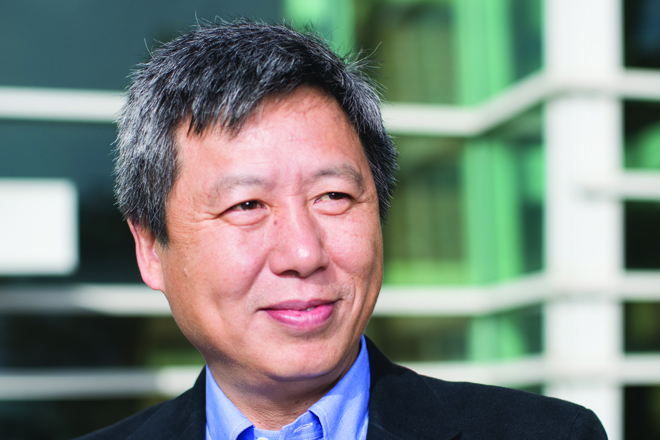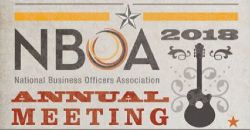Article by Leah Thayer
From the January/February 2018 Net Assets magazine
In 2016, an artificial intelligence robot named Todai performed better than 80 percent of students taking the famously difficult, seven-section entrance examination to Tokyo University, Japan’s most prestigious university. More recently, an AI-enabled robot named Xiaoyi passed the written test of China’s national medical licensing exam. To Yong Zhao, such achievements aren’t so much technological breakthroughs as evidence that many educational systems and institutions — among them K-12 independent schools — are going about it all wrong with their human students.
“Just preparing kids to do well on tests and get into elite colleges is not preparing them for the future,” said Zhao, the Chinese-born, Kansas-based professor who is speaking at the Business Officer Breakfast during the 2018 NBOA Annual Meeting. In recent conversations with Net Assets, he addressed some of the sweeping forces involving globalization, technology and shifting parental expectations that are reshaping education, along with their implications for independent schools.
For instance, as computers get smarter, capable of performing increasingly sophisticated tasks once reserved for humans, it stands to reason that educators should pivot toward engaging and motivating students on a more personalized and individualized level — by tapping their inherent strengths and passions, he believes. And as Asian educational systems produce ever more graduates who excel in traditional academic pursuits, western schools must think beyond their traditional fixed, classroom-based curricula to find better ways to help students learn.
“Nobody stands still,” said Zhao. To illustrate, he outlined a surprising role-reversal playing out among educational systems around the world. While U.S., British and other systems become more Asian in how they teach math and other disciplines, Asian systems are looking west for inspiration. “China, Singapore, Korea, Japan — those countries rose because they were able to marshal the agricultural labor force to do low- and medium-end industrialized work,” Zhao said. But now, after decades of emphasizing rote memorization, many Asian systems have plateaued. “They’re realizing they have to create, so in a sense they’re trying to catch up with the American style of education and its emphasis on character, values, creativity, collaboration.”
As Zhao sees it, these trends and forces compel independent schools to look beyond excelling in classroom instruction — a small piece of the overall quality equation, he believes — and strive instead to create new options that will differentiate them in the increasingly crowded and competitive educational marketplace. “Independent schools are imprisoning themselves by not moving forward,” Zhao said. “They can start something new. They’re powerful. They have all these resources and this great reputation, and they shouldn’t waste either. They should be the ones leading change.”
Playing to Strengths
Zhao’s worldview is rooted in a lifetime of personal restlessness amid dramatic global change. Born 52 years ago in rural Sichuan Province during China’s Cultural Revolution, he had neither the desire nor the aptitude for the farming life expected of him. He was smaller and weaker than other boys, ill-suited to driving water buffalos and wielding agricultural tools, he wrote in his forthcoming book, “Reach for Greatness: Personalizable Education for All,” to be published this year. But he was good at reading and lucky that his illiterate parents, though baffled by how their son might make a living, forgave his “weaknesses” and let him spend his spare time reading everything he could get his hands on.
“My teachers in the village school were not well trained to make me follow a prescribed reading curriculum,” he wrote. “The assortment of used books, magazines, and newspapers my father collected for wrapping noodles in the village noodle factory not only taught me to read but also, more importantly, exposed me to a broad range of topics, way beyond what a very carefully designed curriculum can offer.”
In the intervening years, China began its transformation from a largely agrarian society to an economic powerhouse. A temporary byproduct of that evolution was the loosening of certain educational requirements, resulting in Zhao’s being able to go to college without having to study math — another weakness of his. He later launched and quit several careers before moving to the U.S. for his master’s and Ph.D. so he could teach at the college level. “I have been fortunate to be able to avoid virtually everything that I have no potential for being good at or I am not interested in,” he wrote.
Zhao’s success in finding his own way supports his view that independent schools not only are uniquely positioned to think beyond traditional notions of academic excellence — but should do so, as a matter of survival.
“Change can come slowly, but when changes accumulate, they become revolutionary,” he said. As an advocate for independent education (his two children went to U.S. independent schools), it pains him to see schools tout their differences yet shy away from truly breaking new ground. “It’s a paradox, isn’t it? Any time I propose that a school try something new, someone always asks, ‘Has anyone else done it?’” He also worries when schools coast on their reputations, confident that a healthy waiting list or well-funded endowment assures a bright future. “Sticking to what works might delay failure for 20 or 30 years, but when it comes, it will be catastrophic.”
Independent schools are perfectly suited to drive the change education needs. Unrestrained by standardized expectations such as the Common Core, they can tinker and tweak what and how they teach without necessarily spending a lot more.
Independent schools are perfectly suited to drive the change education needs, Zhao believes. Unrestrained by standardized expectations such as the Common Core, they can tinker and tweak what and how they teach without necessarily spending a lot more: the electives they offer, the activities and clubs they encourage students to pursue. “I think independent schools offer a much better education because of the cultural environment,” he said. “And given what parents are paying, they should.” Moreover, parents clearly want more options, he noted. “Warning signs are: diversification of parents’ views of education,” fueling the rise of alternative models like online and micro schools.
“One of the most important things in learning is what to learn,” Zhao wrote in “Reach for Greatness.” He outlined an Australian high school’s transformation from “a horrible reputation” and 286 students in 2009 to one of the country’s most progressive schools, with more than 1,000 students today. Its strategy? Encouraging students to take control of their own learning. The new head, Peter Hutton, surveyed students to find out what they would like to study, and moved toward an individualized approach that lets students develop their own learning plans based on their passions and strengths.
Zhao isn’t advising other independent schools to copy that school, but to find their own way — just as he did. “I’m a person who got out of my village by always asking questions,” he told Net Assets. “I was always trying to avoid homogenizing myself. If anyone ever told me to do something new, I would say, ‘Only if nobody else has done it.’”




